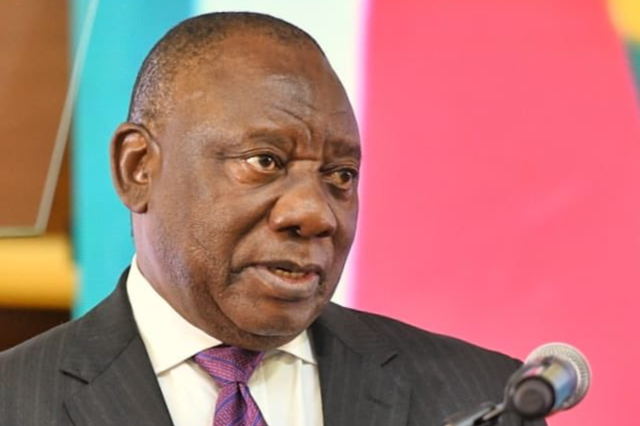Johannesburg – With less than two months to go until the African National Congress gathers to elect a leader, President Cyril Ramaphosa appears weakened as he seeks to retain the helm of South Africa’s fractured ruling party.
A scandal over millions of dollars allegedly found stashed at his luxury farmhouse has stained the image of Ramaphosa, who in 2018 had been trumpeted as a clean pair of hands after the graft-tainted era of Jacob Zuma.
With the ANC conference looming, analysts examine the prospects for the embattled 69-year-old former union leader and business tycoon.
Can he stay in power?
Commentators agree Ramaphosa stands a reasonable chance of staying on as leader of the ANC, the spearhead of the struggle against apartheid and South Africa’s ruling party since the advent of democracy in 1994.
He is “not in the strongest position, but still likely to win the race due to the lack of a stronger (rival),” said Pearl Mncube, an analyst at Frontline Africa Advisory, a Pretoria-based political risk advisory firm.
Ramaphosa’s opponents within the ANC have found fodder in the cash scandal that emerged in June.
The president is accused of hiding from police and tax authorities a 2020 break-in and cash heist from his farmhouse in the northern province of Limpopo.
“Groups opposing Ramaphosa have heavily weaponised the scandal (and) the economic woes facing the country,” Mncube said.
But “despite criticisms… he still enjoys significant support within the party”.
Susan Booysen, a professor at the University of the Witwatersrand, agreed that “there is still a pretty good chance that Ramaphosa will make it”.
Political analyst Eusebius McKaiser said Ramaphosa would “probably be okay”.
“But the degree of certainty has dropped and the reason for that is – although he is clearly still the frontrunner – his credibility (has been) dented.”
Who are his key rivals?
A few candidates have thrown their names in the ring to be the leader of the ANC.
Chief among them is Ramaphosa’s former health minister Zweli Mkhize, 66, who quit government last year amid allegations he diverted Covid funds. He has denied the accusations.
Senior cabinet minister Nkosazana Dlamini-Zuma, 73, the former chairwoman of the African Union Commission and Zuma’s ex-wife, who narrowly lost to Ramaphosa in the last vote more than four years ago, is another name being touted.
But analysts say Ramaphosa, a one-time favourite of anti-apartheid hero Nelson Mandela, remains the most attractive candidate.
“All the candidates are flawed and therefore there is no real threat,” said McKaiser.
“The reality is that for all the president’s weaknesses… relative to other candidates, he remains their best chance.”
What about Zuma?
Zuma, who faces corruption charges arising from a 1990s arms deal and has just ended a 15-month jail term for snubbing an anti-graft probe, has gone on the offensive.
He launched an unprecedented broadside against Ramaphosa at the weekend, accusing him of corruption and treason — an attack whose timing was seen as a deliberate move to smear his successor.
McKaiser dismissed the diatribe as “the rant of someone desperate to be an influencer” and said it was unlikely to shape the outcome of the election.
“Zuma’s influence is less than what he thinks it is,” he said.
Despite this, Zuma’s retains a hold over many ANC radicals, enabling him to stir resentment over deep-rooted poverty and inequality.
Ramaphosa “is still the strongest candidate but it’s going to be such a weak few years that follows for government and the ANC,” said Booysen.
That weakness may sap any political drive to reform South Africa’s economy, analysts say. The country is mired in low growth, catastrophically high unemployment and a failing energy system that has led to rolling blackouts.
Follow African Insider on Facebook, Twitter and Instagram
Source: AFP
Picture: Twitter/@CyrilRamaphosa
For more African news, visit Africaninsider.com


